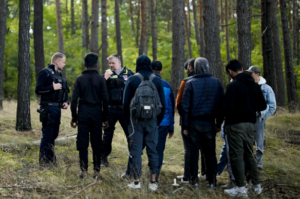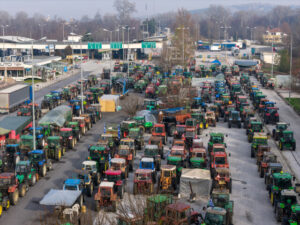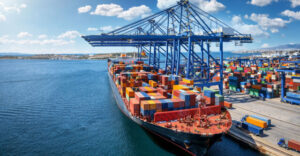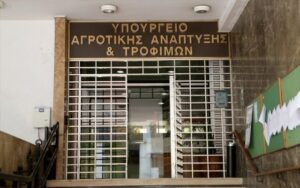With Germany’s decision to implement spot checks at its land borders now in effect for 24 hours, Athens is closely monitoring developments. This is because the measure already appears less “effective” than initially described, given Chancellor Scholz’s effort to balance a tougher message on German immigration policy with relations with neighboring countries.
Since yesterday, the Greek government has clearly stated that it will not allow itself to become a “punching bag,” as Pavlos Marinakis put it. At the same time, Foreign Minister Giorgos Gerapetritis, while welcoming his French counterpart, Mr. Séjourné, emphasized the need for a fair distribution of burdens.
The first face-to-face meeting with a German official took place last night in Berlin. Migration Minister Nikos Panagiotopoulos, accompanied by the General Secretary of Migration Policy Manos Logothetis, met for over two hours in a central hotel with the German Deputy Minister of the Interior, Bernd Kröschner.
On the occasion of the Security and Migration Conference organized by Germany today, under Interior Minister Nancy Faeser, the two Greek officials heard the message from the German side that this is not a “dismantling” of the Schengen area, but a signal that Europe should no longer be a destination. Moreover, for the first time, Germany seemed to understand that the issue is not financial but inherently political, with domino-like consequences if not controlled.
Despite the recent rhetorical flare-ups, the atmosphere was generally positive. Panagiotopoulos conveyed the message that ad hoc approaches to migration management are unacceptable, and that the priority is the implementation of the European Pact on Migration and Asylum, which was agreed upon just a few months ago, following a compromise between Germany and Italy.
Italy is also hardening its stance, with Prime Minister Giorgia Meloni explaining yesterday, during joint statements with British Prime Minister Keir Starmer, that she is counting on processing asylum requests in a facility in Albania, outside Italian territory. Notably, Meloni and Mitsotakis will coincide next week at an Atlantic Council event in New York.
The Fence and Speedboats
The migration alarm in Greece remains constant. Yesterday, Michalis Chrysochoidis visited Evros, where about one kilometer remains to complete the ongoing 35-kilometer extension of the fence. About 100 kilometers are still needed, with the government stating that this will be completed soon. Mitsotakis, speaking from Vienna, reiterated the request for European funding for a project that could be classified as of European interest. However, if Europe continues to refuse funding deterrent measures, Greece has the resources to complete the project on its own.
Beyond Evros, the problem is also constant at sea borders, where flows have been increased recently. Although officials report an alleged “slowdown” in comparison to last year’s large flows, the problem persists. Smugglers have started using speedboats, targeting islands without refugee facilities, such as Crete, Rhodes, and other Dodecanese islands like Symi.
Officials note that the Hellenic Coast Guard is actively preventing crossings, focusing on these new routes, while fully utilizing intelligence from the National Intelligence Service. The migration issue will be a topic of discussion at the upcoming Mitsotakis-Erdogan meeting next week, as there is a recognized need for greater involvement of the Turkish Coast Guard along Turkey’s shores in the coming period.
Ask me anything
Explore related questions





